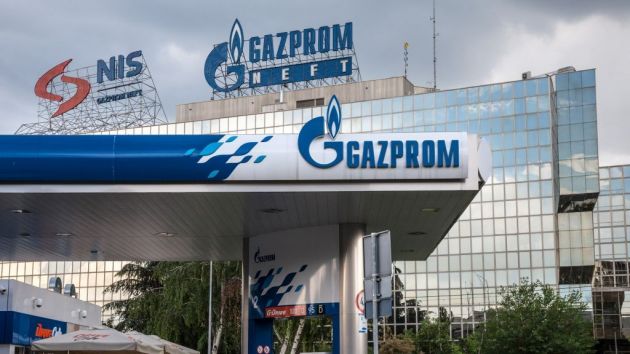Gujanicic: USA seeking to change Serbia’s foreign policy through sanctions on NIS
Source: Beta
 Sunday, 12.01.2025.
Sunday, 12.01.2025.
 11:53
11:53
 Sunday, 12.01.2025.
Sunday, 12.01.2025.
 11:53
11:53
(Photo: Shutterstock/Nenad Nedomacki)

– Serbia has been relatively successfully balancing between the East and the West for the past two years, offering each side certain concessions, and this has clearly come to an end with the decision of the outgoing US administration – Gujanicic stated in an article he wrote for Forbes Serbia.
He pointed out that, as an effective means of implementing this decision, the US could not find a better target than a strategically important company that holds about 80% of the domestic motor fuel market (about 50% of retail sales) and owns a refinery in Pancevo, where about a quarter of domestic crude oil is processed and the rest is imported, which mostly comes via the Adriatic oil pipeline (Jadranski naftovod – JANAF).
– The key issue of the sanctions that were expected concerned the possibility of NIS continuing to import crude oil without hindrance, given that the noose of financial sanctions and the inability to supply equipment to the West began to tighten since 2022 – Gujanicic stated.
The war in Ukraine, as he assessed, confronted NIS with the strongest wave of EU sanctions to date, which were partially avoided by a cosmetic change in the ownership structure – Gazprom Neft (Gazpromneft) ceded 6.2% of its shares to Gazprom (Gazprom) in early May 2022, lowering its own ownership stake to 50%.
According to him, this maneuver was based on the inconsistency of the EU’s punitive policy, which exempted Gazprom, which continued to supply gas to the countries of this economic and political bloc.
– This type of “adjustment” in the new round of sanctions coming from the other side of the Atlantic will apparently not be possible, leaving Serbia with little room to maneuver, a month and a half to find a solution. There are not too many scenarios, and even those that are available could have serious consequences – said Gujanicic.
A negotiated purchase of the Russian stake in NIS, he added, would at first glance be the most suitable solution, given that the ultimatum of the American side is met, while on the other hand maintaining close relations with Russian partners who are important to the domestic state due to the use of Russian gas.
– The catch is the possible refusal of the Russian side to agree to the sale, given that such a move would indicate Russia’s weaknesses in a situation where there is no end in sight to the Russian-Ukrainian war – said Gujanicic.
The income that the Russian side would generate in this transaction is not, in his opinion, nearly as significant an item as the economic and political influence in the Balkans through a strategically important company.
– The expected refusal of the Russian side to withdraw from NIS could lead to the company's operations being hampered if the US administration were to exert strong pressure on all EU members to suspend business with NIS. The refinery would operate at significantly reduced capacity, and alternative crude oil supply channels would lead to increased costs – Gujanicic believes.
Read more:
The Serbian economy itself would also suffer major consequences, as there would be disruptions in the energy market.
– The sub-scenario of the Russian side not agreeing to the sale of its ownership stake could lead to the nationalization of NIS, which would certainly be a precedent, both in Russian-Serbian relations and in the treatment of foreign investors. The consequences would certainly be reflected in the energy agreement with Russia, but also in the future approach of foreign investors who might shy away from the local business environment – Gujanicic stated.
He pointed out that the fact that the current measures were adopted by the outgoing US administration did not mean that the new occupant of the White House would not adhere to them, but added that there might certainly be some room for maneuvering to buy time or modify the instructions received.
– Especially if the often-mentioned hopes of starting a dialogue to end the war in Ukraine in the early days of Trump’s mandate come true. The meeting between Trump and Putin, which is also being speculated about, would have to have on the agenda the issue of US sanctions, and therefore the fate of NIS, which could end up being collateral damage in the relations between the great powers – said Gujanicic.
He believes that domestic leaders are facing extremely difficult choices and that it must be admitted that the local government has “consulted” the public about the upcoming situation like never before.
– This cannot be said for conducting a foreign policy of sitting on two chairs, the price of which could now be delivered with usurious interest – warned Gujanicic.
Companies:
 NIS a.d. Novi Sad
NIS a.d. Novi Sad
Tags:
Gazprom Neft
Gazprom
Gazpromneft
Nenad Gujaničić
PanÄŤevo Oil Refinery
Jadranski naftovod
JANAF
sanctions against NIS
US sanctions against NIS
American sanctions against NIS
foreign policy of Serbia
buyout of Russian share in NIS
Russian ownership share in NIS
Comments
Your comment
Most Important News
Full information is available only to commercial users-subscribers and it is necessary to log in.
Follow the news, tenders, grants, legal regulations and reports on our portal.
Registracija na eKapiji vam omogućava pristup potpunim informacijama i dnevnom biltenu
Naš dnevni ekonomski bilten će stizati na vašu mejl adresu krajem svakog radnog dana. Bilteni su personalizovani prema interesovanjima svakog korisnika zasebno,
uz konsultacije sa našim ekspertima.


 Izdanje Srbija
Izdanje Srbija Serbische Ausgabe
Serbische Ausgabe Izdanje BiH
Izdanje BiH Izdanje Crna Gora
Izdanje Crna Gora


 News
News









